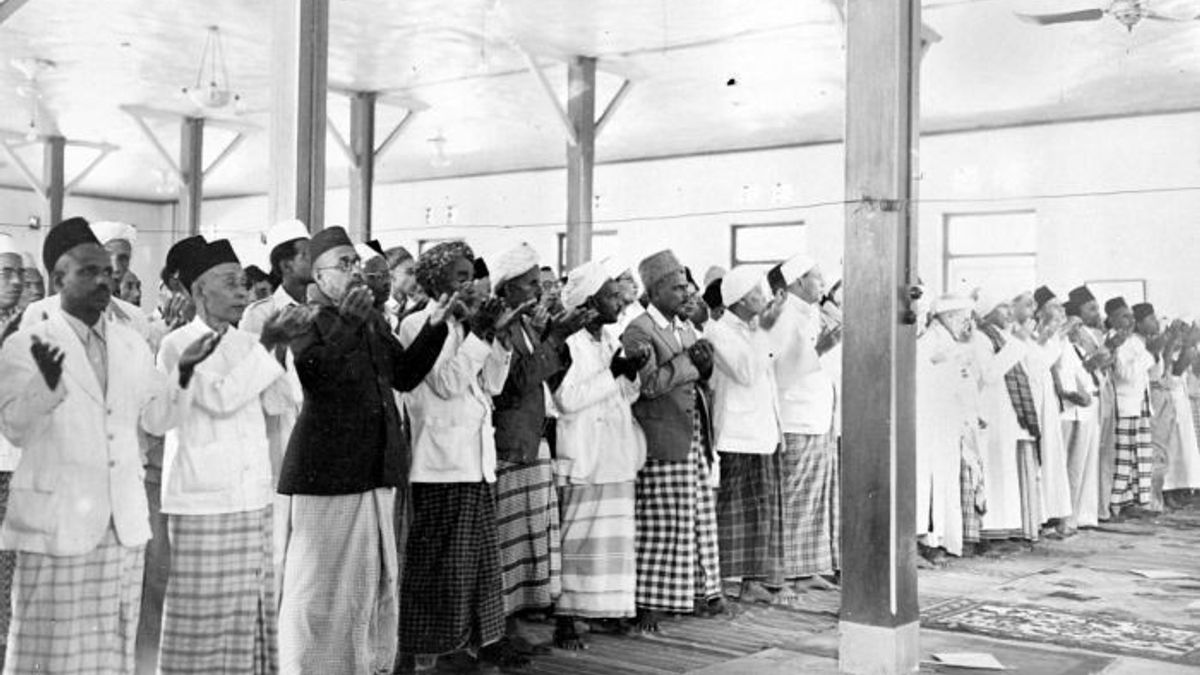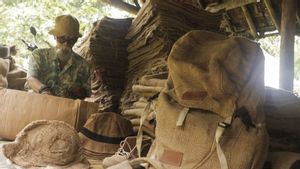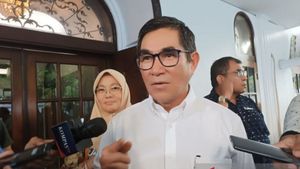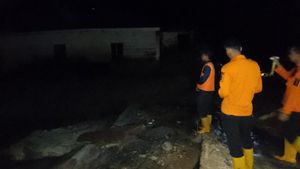JAKARTA - The Koran teacher has an important role for the existence of Islam in the archipelago. In Betawi, for example. In the past, the skill of being good at the Koran was the dream of every Betawi Muslim. All of that so that Betawi children get adequate knowledge about religion.
Therefore, parents are entrusting their children to the Koran teacher. Everything was taught by him. From the Koran to the science of monotheism. They teach with sincerity. They don't even charge too much. Alias not dazzle property.
Betawi and Islam are a unity that is difficult to separate. This fact has even been going on since the Dutch colonial period. The persistence of the Betawi people in embracing Islam is second to none. They never submitted to or turned to the religion brought by the Dutch. Betawi people do not stay silent. They fight.
Islam is the main foundation. All kinds of Islamic knowledge and traditions are inherited from generation to generation. The results are astonishing. Not infrequently Betawi children understand hijaiah letters better than Roman letters. Because, in the past, the Betawi people were very concerned about religious education for their children. The closeness of the Islamic tradition of maulidan and narration is considered as evidence.

The admiration for the closeness of the Betawi people and Islam was also shared by great scholars. Buya Hamka, for example. The cleric from Minangkabau knows very well the character of the Betawi people. Moreover, he has lived in the Betawi village for years in the Taman Sari area, Jakarta Berat. He witnessed the enduring Islamic tradition held by the Betawi people. Especially in the Dutch era.
The Betawi ethnicity at that time was never considered important by the Dutch. Even if there is, only a limited circle of people feel it. The rest live in all limitations. However, that does not mean that piety to the Creator is decreasing or decreasing. Betawi people are even more diligent in worshiping. Every day the mosque is always crowded with Betawi people.
"It's really amazing for us, considering how firmly the Betawi people embraced Islam. For 350 years between the colonialists (the Dutch) and the children of the native country (Betawi) they have remained as 'oil and water.' Even though they met in a bottle, they were never united. The blows suffered by the Betawi people from the Netherlands as colonized people were very severe."
“Their houses consist of woven bamboo walls or thatched roofs. Live in muddy places. However, when the time has come, the dawn has begun to break, you can hear the faint sound of the village alleys, the sound of the call to prayer languishing. Hayya 'allal shalah hayya 'allal falah. So, from the muddy alleys of the Betawi village, the villagers came out for congregational prayers. After that they read ratib: Lailla hailallah,” said Buya Hamka as quoted by Alwi Shahab in the book Robin Hood Betawi: The Betawi Story Tempo Doeloe (2001).
Three Classes of Koranic TeachersThe closeness of the Betawi people and Islam is an open secret. That existence is perpetuated from time to time. The key is in the presence of the Koran teacher. The presence of a Koran teacher in educating Betawi children rich in Islamic values is very vital.
Betawi parents consider it important about religious knowledge as the estuary. Even though their children are left in formal schools in the morning, in the afternoon the parents also send their children to learn the Koran from the Koran teacher.
There are not just any Koran teachers in Betawi. Betawi people generally know there are levels of teachers of the Koran. The higher you go, the higher your level of knowledge. The Koran teachers include: first, the teacher. Second, converts. Third, ustaz or ustazah.
"In the past, in Betawi, it was known that there were three classes of Koran teachers based on the depth of their knowledge. The first is called a teacher, namely someone whose knowledge is very deep and broad, such as Guru Mansur (1878-1967) at Jembatan Lima, Guru Mugni (died in 1935) in Kuningan, South Jakarta, Guru Marzuki (1876-1934) in Cipinang Muara. , Jatinegara, and Guru Mujib (died in 1950) Tanah Abang.”
“Teachers only teach in their homes (or in their mosques). So, the disciples who came to him. Second, the teacher of the Koran called muallim, who is a person whose knowledge is quite high, but still goes around teaching in several places. The third is the so-called ustaz or ustazah, namely all those who teach the Koran,” said Betawi Culturalist, Abdul Chaer in the book Betawi Tempo Doeloe: Tracing the History of Betawi Culture (2015).
The Koran teacher was then keen to teach Islam from an early age. His role paid off. Islam is growing in Betawi land. In fact, Islam can be merged and acculturated to become part of the ancestral traditions of the Betawi people.
Betawi culturalist Masykur Isnan said that the role of the Koran teacher was to strengthen the existence of Islam in Betawi land. The Islamic tradition also lasts side by side with the ancestral tradition. The sweet fruit of the Betawi children in the past was able to absorb Islamic values.
Philosophy of GolokThe Betawi people then analogize their closeness to religion through the philosophy of a machete. The machete handle symbolizes the grip of life, the sharp blade is interpreted as a symbol of courage, and the sarong is interpreted as being enveloped by religion and belief.
As a form of appreciation for the Koran teacher, each parent voluntarily gave the Koran teacher oil money. This oil money is a kind of joint venture so that all recitation needs can be met. The term has changed over time.
Oil money is sometimes also known as electricity money. Even so, there is no benchmark for how much each parent actually gives money to the Koran teacher. Moreover, many Koran teachers in the past taught voluntarily. Alias they do not dazzle property.

"Apart from the role of parents, there is also the role of the Koran teacher in the village who consistently and intensively opens recitation mosques starting after maghrib until after Isha. Generally, this is done by the Koran teachers independently, driven by religious awareness."
“Another reason is because the Koran teacher knows the importance of educating the next Betawi generation who should not be far from their religion and noble culture. Do not think that the Koran teacher gets a salary, not necessarily. Sometimes it's even numbered. Again, this is not a problem because it is his noble intention that keeps istiqomah on track. This thing is now starting to disappear. Learning to recite the Koran can be done via virtual means, as a result, the presence of village Koran teachers is starting to be marginalized," concluded Masykur Isnan when contacted by VOI, April 14.
The English, Chinese, Japanese, Arabic, and French versions are automatically generated by the AI. So there may still be inaccuracies in translating, please always see Indonesian as our main language. (system supported by DigitalSiber.id)









